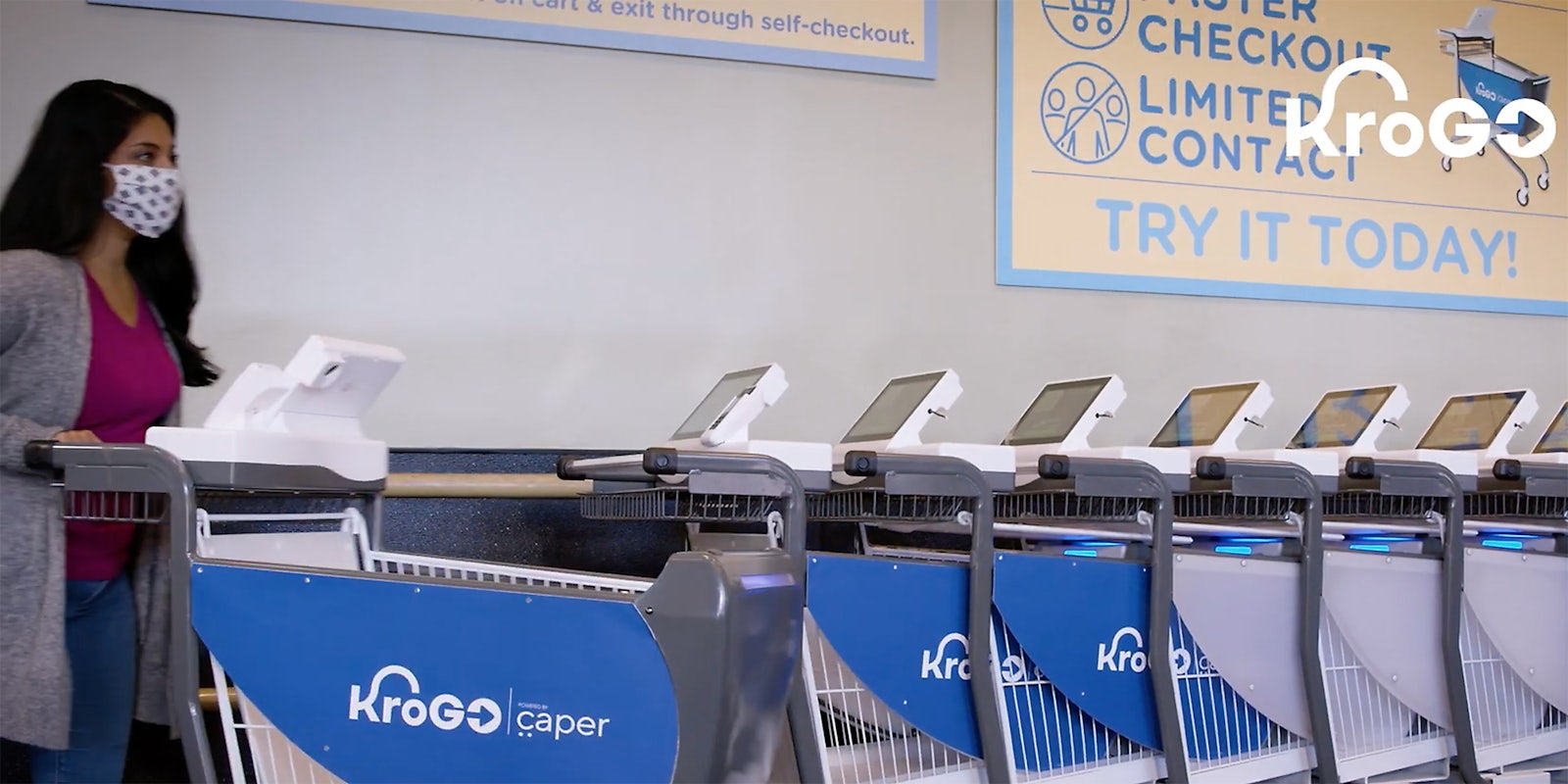A viral video of so-called “cashless” shopping carts has spurred widespread debate on TikTok as well as claims that the technology could be a signal for the end of the world.
The video, uploaded by TikTok user @taballen late last week, shows a row of Kroger shopping carts that allow users to scan and pay for their own items.
“The beginning of getting rid of your cash,” @taballen wrote.
Known as KroGo, the carts come with a built-in scale and camera designed to facilitate a faster shopping experience by letting consumers skip the checkout line.
“You can scan and bag right from the cart as you shop, then pay from the cart and exit quickly through the self-checkout area,” a description on the Kroger website states.
But TikTok users appeared less than enthused. Hundreds of commenters argued that technology had gone too far.
“Too much technology is bad and people need to realize it,” one user wrote.
Countless others seemingly suggested that the shopping carts were fulfilling biblical prophecy regarding doomsday.
“Get right with the Lord, we are in biblical times,” another said.
Some instead saw the innovation as evidence of automation that will ultimately hurt the company’s workers.
“Is this what Kroger is spending their money on instead of paying us a fair wage????” one TikToker asked.
But others asserted that the carts were unsurprising given the exponential growth of technology.
“This is inevitable. You can’t stop innovation,” the user said. “If a company can save time or money, they will go with the next best thing.”
Dozens of users mentioned the “Mark of the Beast,” a reference to the biblical belief that all transactions will be tracked and traced after cash is outlawed.
“Mark of the Beast is coming! Watch on how things unfolds!” another said. “Repent! YESHUA! Is coming! Repent! Repent!”
Kroger, which is the largest U.S. supermarket operator, first announced its KroGo pilot program last January. But the carts were quietly being tested at a store in Cincinnati since October of last year.
Kroger said at the time that it would choose whether to expand the technology based on “insights from our customers and associates.”
The carts were introduced in response to the COVID-19 pandemic, which saw shoppers seeking ways to decrease contact with others and the amount of time spent in grocery stores.
The Daily Dot reached out to @taballen for comment but did not receive a reply by press time.


